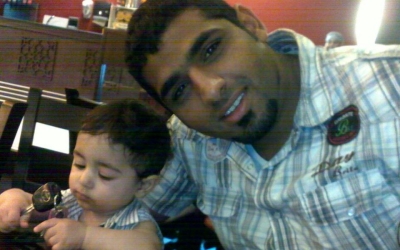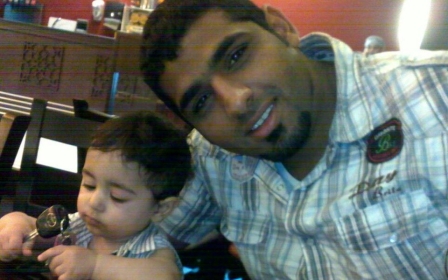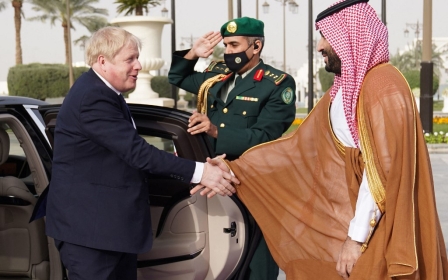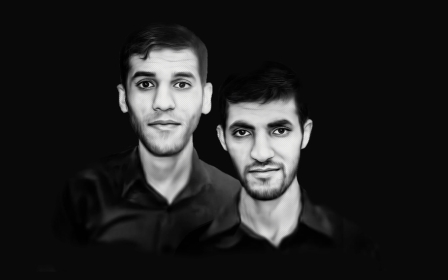Bahrain: Imprisoned Shia cleric abused and denied medical treatment
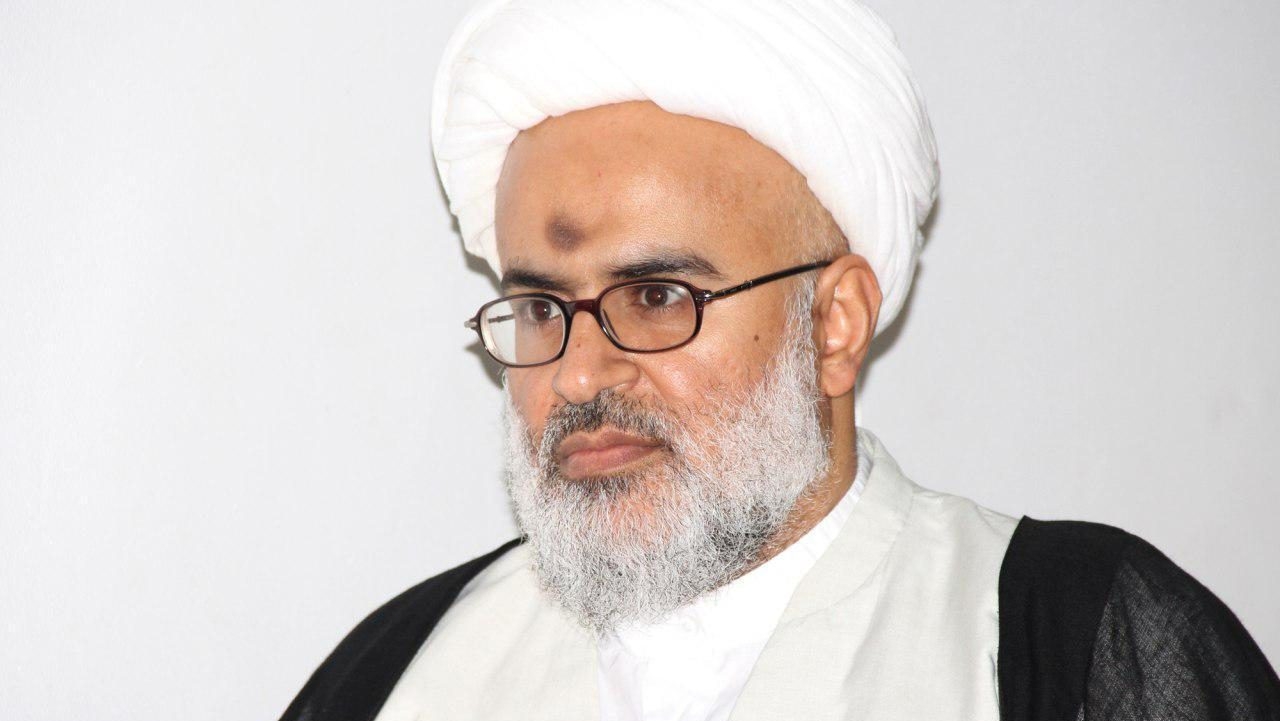
A leading Bahraini Shia cleric was assaulted in prison on Tuesday, en route to a medical appointment, a rights group has told Middle East Eye.
Sheikh Abduljalil Al-Miqdad is the founder of Al Wafaa, a Shia opposition political group in Bahrain. The 62-year-old has been in prison for 11 years and is serving a life sentence for his role in the 2011 uprising.
'I hold the UK government responsible for this situation because they defend and protect [the Bahraini authorities]'
- Abduljalil al-Miqdad
He was due to be transferred out of the notorious Jau Prison on 27 September for an external medical appointment, he told Sayed Ahmed al-Wadaei, director of advocacy at the Bahrain Institute for Rights and Democracy (Bird), in a phone call.
Before the transfer, however, a prison officer informed him that a doctor would not be present. Al-Miqdad responded that he would not attend the appointment if there were no doctor.
He was then told he would have to sign a statement, declaring that he was rejecting medical treatment, but al-Miqdad refused.
New MEE newsletter: Jerusalem Dispatch
Sign up to get the latest insights and analysis on Israel-Palestine, alongside Turkey Unpacked and other MEE newsletters
A group of officers then responded aggressively, attempting to beat him physically while verbally abusing him. Al-Miqdad added that other officers present intervened and stopped the physical assault, before he was returned to his cell.
"This is a violent assault attempt without any exaggeration," al-Miqdad said in the phone call, a recording of which was sent to Middle East Eye. "The reason is revenge, aggression, injustice, and targeting."
On Wednesday, the Bahraini ministry of interior dismissed his report as "incorrect", saying "there was no mistreatment or infringement".
According to Bird, Sheikh al-Miqdad has been subjected to "deliberate medical negligence", despite suffering a range of health conditions, including chronic headaches, swelling in his leg which restricts his movement, cataracts in his eyes, and a slipped vertebrae disc.
In mid-September, the cleric was transferred to an external medical facility inside a vehicle that was not equipped with air conditioning - despite the exreme temperature at the time.
"During the transfer he thus suffered from a headache, difficulty breathing and feared that he would lose consciousness," Bird said. A complaint was filed to prison authorities about the vehicle, also used to transfer political prisoner Ali al-Hajee in July, but no measures were taken to address the problem, Bird said.
The rights group sent a formal request to the ministry of interior, seen by MEE, calling for an investigation into the transfer.
Jau Prison, where al-Miqdad is being held, is the largest long-stay male prison in Bahrain. Located in the village of Jaww on the southeastern coast of Bahrain, the prison has an official maximum capacity of 1,201, but rights groups estimate at least 2,700 inmates are being held there. Most are classified as political prisoners held in connection with their anti-government activism during the Arab Spring uprisings in 2011
UK government accused of complicity
In his phone call with Bird, al-Miqdad called on the UK government to take action.
"I hold the UK government responsible for this situation because they defend and protect [the Bahraini authorities]," he said. "They should stop promoting human rights if this is how they are acting. Aren't we humans? Their eyes were blinded by oil and their ears were shut by interests so let them move away from human rights."
Meanwhile, Liberal Democrat peer Paul Scriven denounced the assault, calling on the British foreign office to pressure Bahrain to investigate the claims.
"This sick and degrading treatment against a highly respected religious figure should not go unnoticed by the @FCDOGovUK," he posted on Twitter, tagging the account of the UK's foreign office.
"I urge you to publicly call on your ally, the Bahraini government, for an investigation into this assault and immediate treatment."
Bird's Al-Wadaei said: "Bahrain has yet again stooped to new lows in this repulsive and degrading assault against a respected elderly religious cleric."
"The UK’s new Middle East Minister, Lord Ahmad of Wimbledon, must show he’s serious by calling out Bahrain to put an end to this abuse."
Official government data show UK government funding for Bahrain through the controversial Gulf Strategy Fund (GSF) more than doubled this year, despite criticism from human rights groups.
Last August, the government disclosed the fund was aiding Bahrain's interior ministry and four oversight bodies that have a responsibility, in some capacity, for political detainees whose treatment has been criticised by rights groups.
Middle East Eye has contacted the Bahraini embassy in London for comment.
Middle East Eye delivers independent and unrivalled coverage and analysis of the Middle East, North Africa and beyond. To learn more about republishing this content and the associated fees, please fill out this form. More about MEE can be found here.


